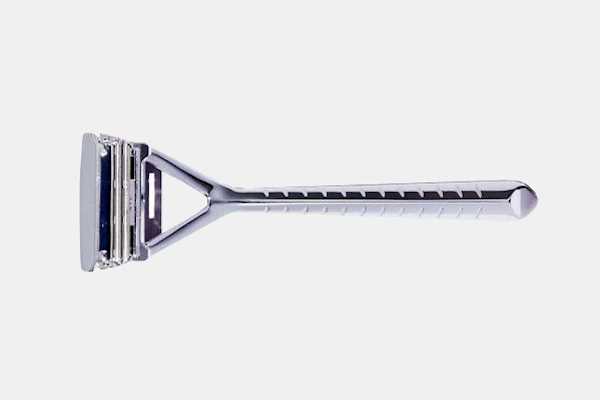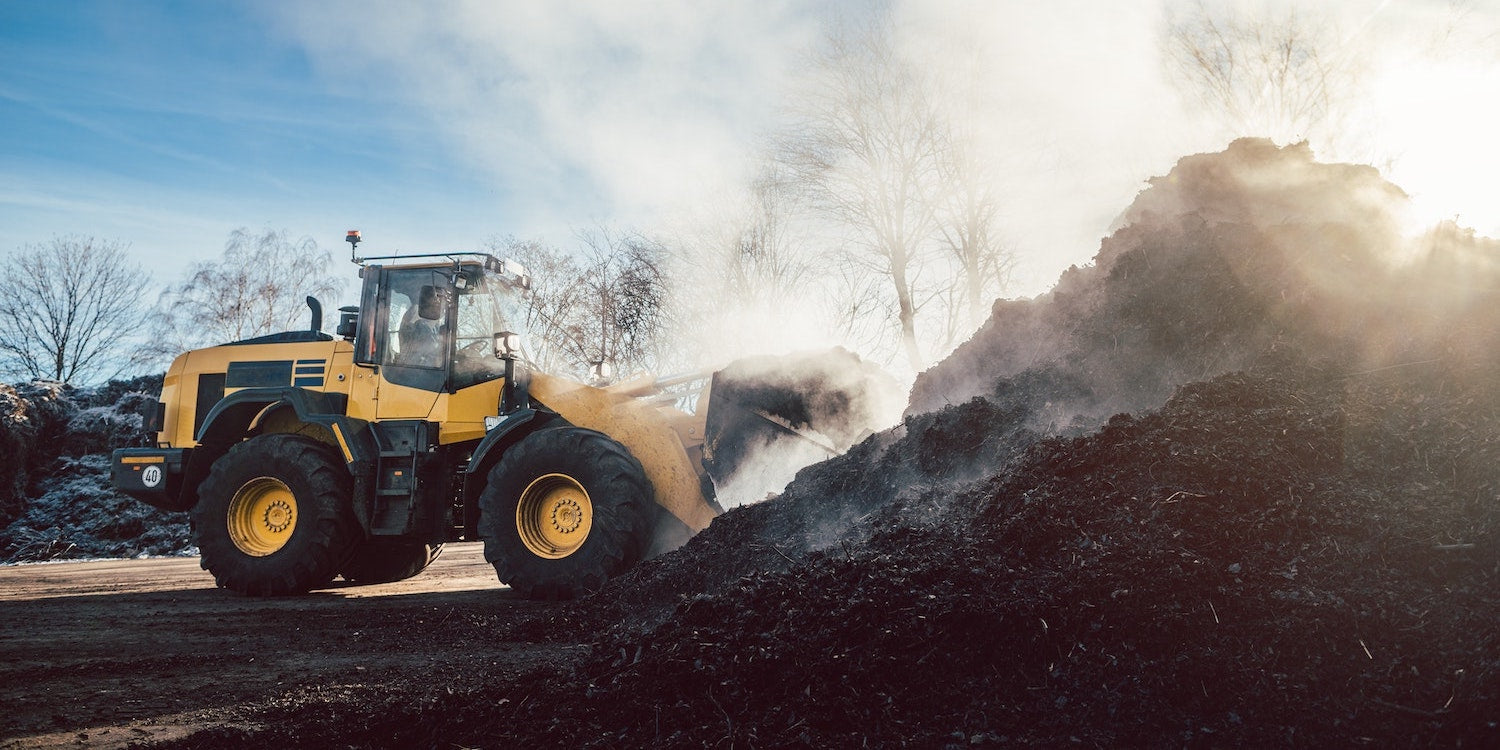Your company cares about the planet – and it shows. You encourage cycling to work, there are recycling bins throughout the office, and the employee Christmas gifts? Yup, you guessed it – sustainable, hand-picked products with low environmental impact.
In other words, you’re doing everything right. Or, are you?
The sustainability jungle, which is complicated as it is, can be even harder to navigate from the office chair. One thing, in particular, trips most of us up – namely, composting. And as it happens, it’s also one of the most important things to get right.
But don’t worry. In this article, we break down the term compostable, and explain exactly how to avoid that one weak link in your chain that could make all your environmental efforts be in vain. We’ll talk about:
→ The Definition of Compostable
→ The Difference Between Biodegradable and Compostable
→ Home Composting vs Commercial Composting
→ Top 3 Benefits of Commercial Composting
→ How to Find the Right Composting Service
Let’s get to saving the planet, shall we?
What Does Compostable Mean?
Firstly, let’s define the term compostable. What, exactly, does it mean?
Compostable means that a material or product can decompose entirely into natural, non-toxic elements. In other words – compostable materials are very good for the planet.
That said, compostable materials need certain conditions to actually break down. Without the right mix of oxygen, heat, humidity, and microorganisms, these products could drift around for years and years, still in their original shape or barely just starting the decomposing process.
Biodegradable vs Compostable – What’s the Difference?
Most of us mix up the terms biodegradable and compostable, or even use them interchangeably. But they are not the same thing – and the difference is crucial.
While compostable materials are things that will break down into natural and non-toxic elements, biodegradable really only means that a material will degrade in nature, without the help of chemicals or industrial processes. But it doesn’t necessarily break down into things our planet can take care of.
For example, in addition to many organic products, biodegradable materials also include plastics and other man-made materials that can be broken down into smaller pieces given time and the right conditions. But as we all know, our planet can’t actually take care of microplastics – the pieces get smaller and smaller, but they never disappear.
“This confusion creates ample opportunity for greenwashing – and sadly, too many companies out there take advantage.”
As you can probably guess, this confusion creates ample opportunity for greenwashing – and sadly, too many companies out there take advantage. The rule of thumb to remember is, compostable products break down without any toxic or unnatural by-products. Biodegradable, on the other hand, is a wider term, that includes both organic and synthetic materials.
Understanding the difference between biodegradable vs compostable is crucial when choosing your sustainable solutions and comparing sustainable products. If we don’t know how something breaks down – or how to ensure that it actually does break down the way it’s meant to – then our efforts are in vain.
Commercial Compost vs Home Compost
As we mentioned, compostable products need certain conditions to properly decompose and close the loop. This is what composts are for – but there are different types of composts, for different uses. Do you know which one is best for your needs?
Home composts are a great way to take care of organic waste in your home, or in relatively small volumes. Food scraps, tea bags, leaves, and grass clippings are perfect for your home compost, and can help you produce great fertilizer for your garden.
But the conditions in a home compost are not ideal for larger pieces that take a long time to break down, or larger volumes of organic waste.
Firstly, the conditions in a home compost are mostly intuitive – you need a balance of nitrogen-rich and carbohydrate-rich materials, and you strike the balance as best you can. But this might not be enough for some items or larger pieces of waste, that rely on the exact right conditions to decompose.
Enter: Commercial composting.
Commercial composting, also known as industrial composting, is when compostable materials are broken down in big facilities with controlled conditions.
Here, the humidity levels, oxygen levels, temperature, and the balance between nitrogen and carbon-rich materials are monitored closely throughout the entire process of an item breaking down. This ensures that materials break down as quickly and efficiently as possible – without any harmful by-products or gases.
“Commercial composting is when compostable materials are broken down in big facilities with controlled conditions.”
Some products on the market today, such as sugarcane, starch, and corn-based plastic packaging, are actually made to be industrially composted – and won’t break down in a home compost at all. Sadly, since this is not widely known, many of these products remain intact, when they could be broken down and taken care of.
Now, both of these serve a purpose, and a home compost is great for individuals or households. But it can’t accomplish everything, and complementing it with a commercial composting service is the only way to ensure you can take care of all your waste.
Top 3 Benefits of Commercial Composting
As you can tell, commercial composting really is a crucial part of the sustainability puzzle. Here are the top 3 reasons you should enlist the help of a commercial composting service:
1. Efficiency
Home composting requires both time and love. It’s something you need to keep on top of and monitor, so the conditions remain in balance and your organic waste actually breaks down. You need to get to know your compost, so you can pick up on the signs that it’s dipping out of its genius zone, and learn what to feed it to get it back on track.
While this can be a peaceful and satisfying activity at home, for larger households or office spaces, it quickly becomes impractical and complicated. If numerous people are stuffing waste in the compost, it’s almost impossible to monitor its conditions properly. Besides, what company has the time and resources for this level of attention?
“Products such as sugarcane, starch, and corn-based plastic packaging are made to be industrially composted, and won’t break down in a home compost at all.”
Enlisting the help of a commercial composting service is easy, efficient, and ensures the composting is done right. They deliver the clean bins to your doorstep and pick up the full ones, every week. All you need to do is throw your scraps in the trash and get back to work.
2. Avoid Smells and Bugs
It’s natural for composts to smell, and it’s an organic process – meaning bugs and fruit flies are frequent and welcome visitors.
Now, while there are a few ways to minimize the smell of a compost, you can’t entirely get rid of it. And if you have a large household or an entire office’s worth of lunch leftovers to deal with, the volume pretty much ensures you’re gonna have a smelly corner of the kitchen.
With regular pick-ups and fresh bins, all of that stuff happens at the composting facility instead – and you can feel good about what you’re doing, without having to endure the less pleasant sides of it.
3. Ensures Your Sustainable Products Actually Break Down
As we mentioned, composts are not just for food scraps. Plenty of the really great sustainable products that replace single-use and plastic products these days are compostable – but only in commercial composting facilities. A home compost won’t make any difference.
“Complementing your home compost with a commercial composting service is the only way to ensure you can take care of all your waste.”
In other words, if you’re making switches around the office or your home to sustainable, compostable products and you’re not using a composting service… well, you’re likely wasting your time. If it doesn’t break down at the end of its life, then what's the point of a product that can break down?
Using a composting service is the only way to ensure you’re efforts really are making the difference you want them to.
How to Find the Right Composting Service for You
So, how do you go about using a composting service that’s local and efficient?
It’s actually a very easy process – there’s a wealth of composting services all over the country that can be of use. Two good places to start looking are Good Start Packaging or Find a Composter, where you can easily find composting services in your area and zip code. Most cater to both households and offices!
Are you trying to change the way your company thinks about sustainability? At Lochtree, we’re all about positive impact, and we’re happy to help you figure out the most impactful changes you could make to help save the planet. Get in touch with us here and let’s chat!






